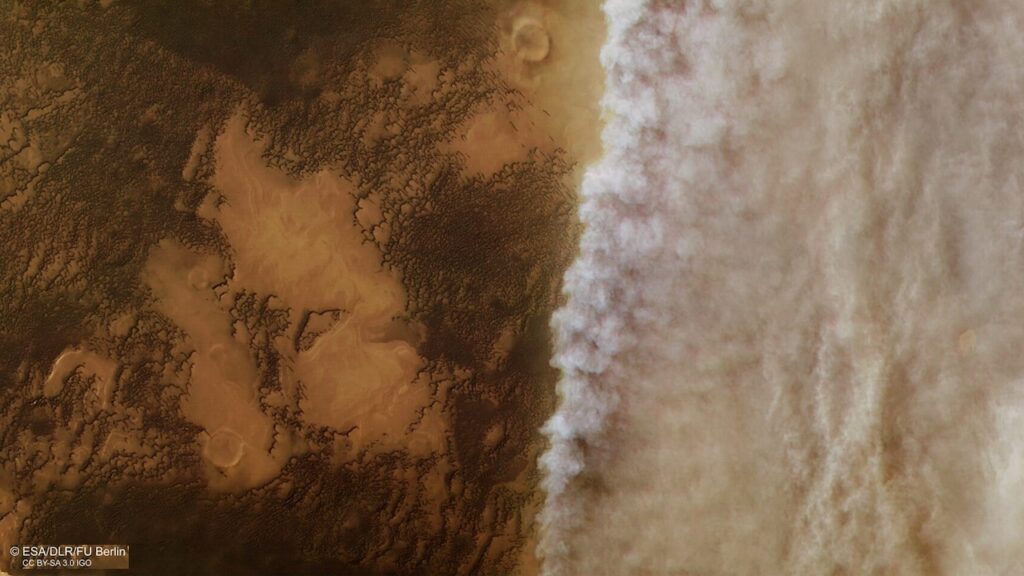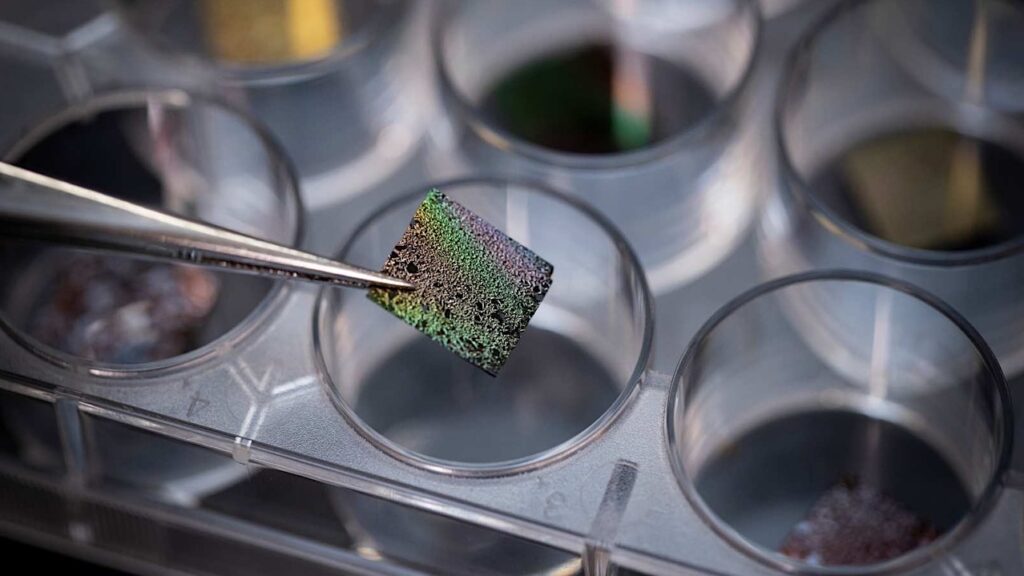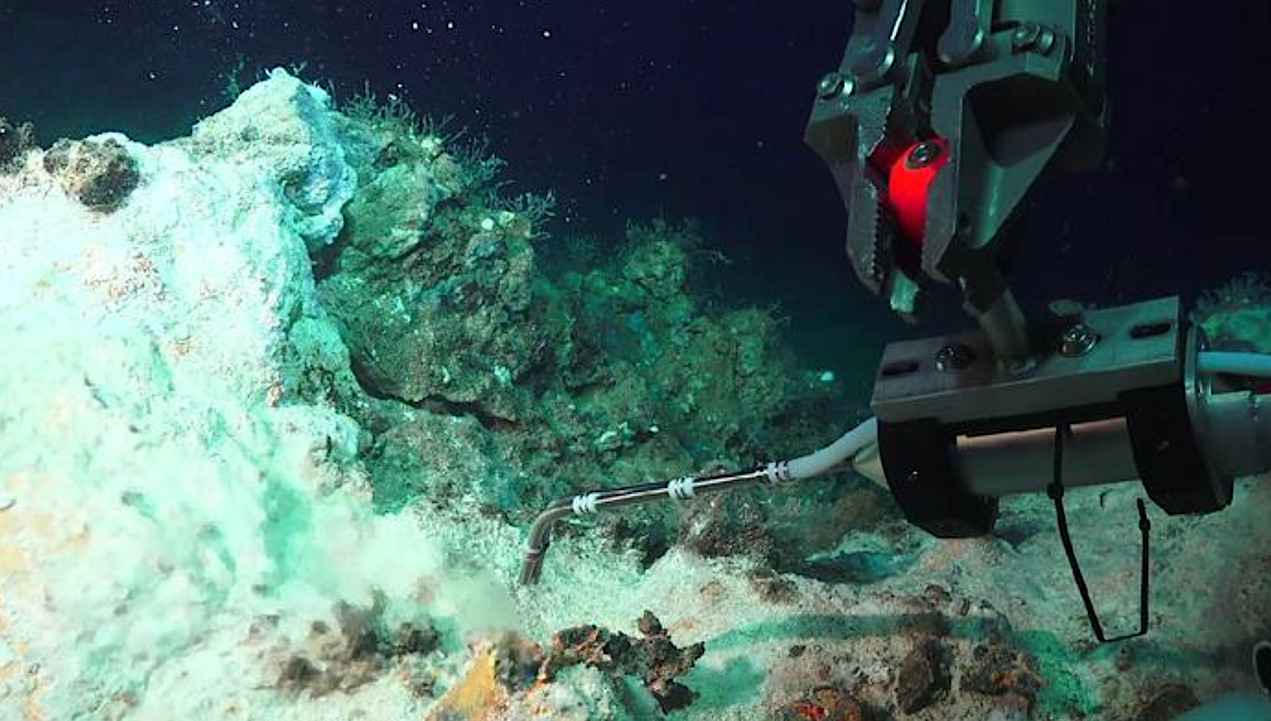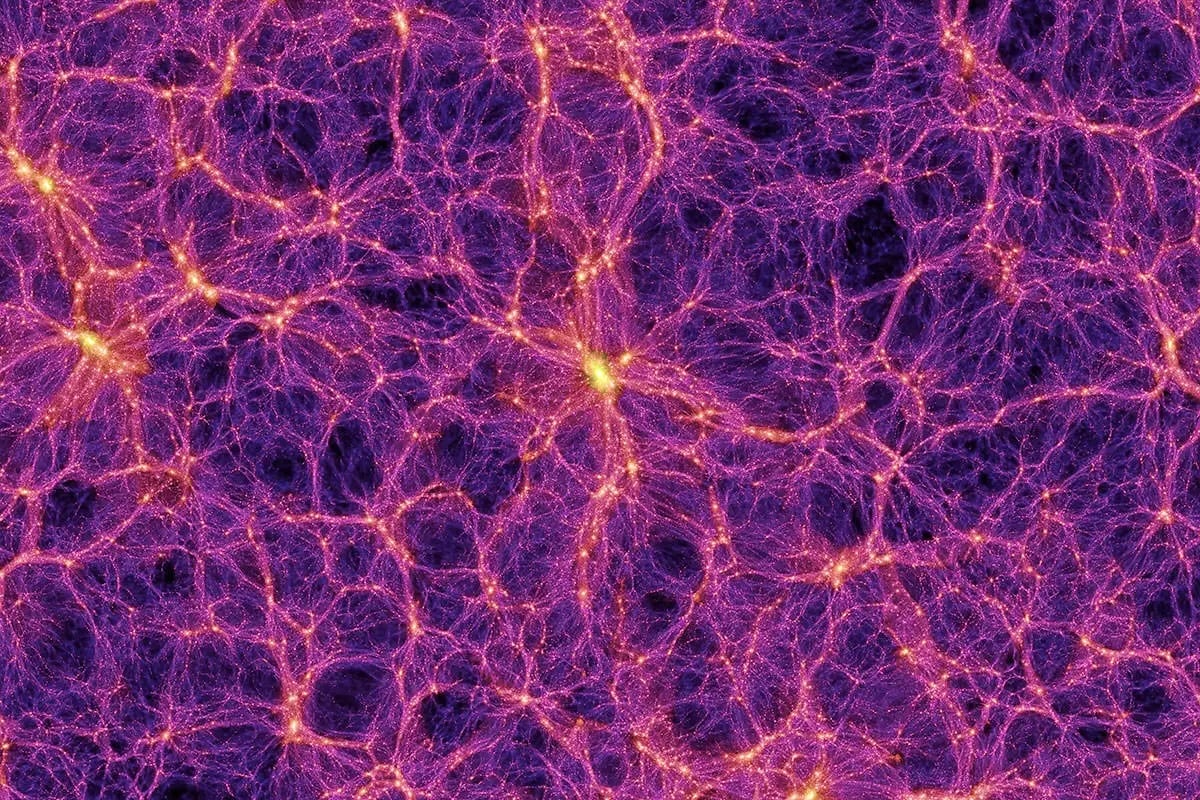Now Reading: Findings Suggest The Mars Was Warmer And Wetter Millions Of Years Ago
-
01
Findings Suggest The Mars Was Warmer And Wetter Millions Of Years Ago
Findings Suggest The Mars Was Warmer And Wetter Millions Of Years Ago
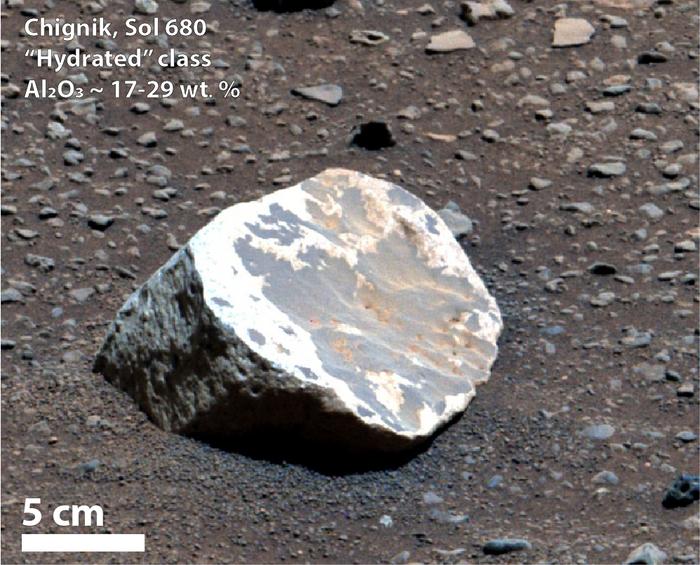

Chignik, Sol 680 “Hydrated” class Al203 ~ 17-29 wt.% — NASA
Rocks that stood out as light-colored dots on the reddish-orange surface of Mars now are the latest evidence that areas of the small planet may have once supported wet oases with humid climates and heavy rainfall comparable to tropical climates on Earth.
The rocks discovered by NASA’s Perseverance Mars rover are white, aluminum-rich kaolinite clay, which forms on Earth after rocks and sediment are leached of all other minerals by millions of years of a wet, rainy climate.
These findings were published Monday (Dec. 1) in the peer-reviewed scientific journal Communications Earth & Environment by lead author Adrian Broz, a Purdue University postdoctoral research associate in the lab of Briony Horgan, a long-term planner on NASA’s Mars Perseverance rover mission and professor of planetary science in the Department of Earth, Atmospheric, and Planetary Sciences in Purdue’s College of Science.
“Elsewhere on Mars, rocks like these are probably some of the most important outcrops we’ve seen from orbit because they are just so hard to form,” Horgan said. “You need so much water that we think these could be evidence of an ancient warmer and wetter climate where there was rain falling for millions of years.”
Broz said tropical climates like rainforests are the most common environments to find kaolinite clay on Earth.
“So when you see kaolinite on a place like Mars, where it’s barren, cold and with certainly no liquid water at the surface, it tells us that there was once a lot more water than there is today,” said Broz, a postdoctoral collaborator on the Perseverance rover.
The kaolinite fragments, which range from pebbles to boulders, are the latest small pieces to the larger debate regarding Mars’ climate billions of years ago. Initial examinations by the Mars rover’s SuperCam and Mastcam-Z instruments were used to compare the kaolinite to similar rocks found on Earth. The Martian fragments could offer significant insight into not only the planet’s past environmental stages, but also how Mars came to its current barren state.
Horgan said kaolinite also carries its own mystery. There is no major outcropping nearby where the light-colored rocks could have originated despite being scattered throughout the mission path Perseverance has followed since landing at the Jezero crater in February 2021. The crater used to contain a lake about twice the size of Lake Tahoe.
“They’re clearly recording an incredible water event, but where did they come from?” Horgan said. “Maybe they were washed into Jezero’s lake by the river that formed the delta, or maybe they were thrown into Jezero by an impact and they’re just scattered there. We’re not totally sure.”
Satellite imagery has spotted large outcroppings of kaolinite in other areas of Mars.
“But until we can actually get to these large outcroppings with the rover, these small rocks are our only on-the-ground evidence for how these rocks could have formed,” Horgan said. “And right now the evidence in these rocks really points toward these kinds of ancient warmer and wetter environments.”
Broz compared the Martian kaolinite samples examined by Perseverance with rock samples found in locations near San Diego, California, and in South Africa. The rocks from the two planets were a close match.
Aside from a rain-heavy tropical climate, Broz said kaolinite on Earth also forms in a hydrothermal system when hot water is leaching the rock. But that process creates a different chemical signature in the rock than leaching at lower temperatures by rain over thousands to millions of years. He said datasets from three different sites were used to compare the hydrothermal leaching scenario to the Mars rocks.
Rocks on Mars like the kaolinite are a similar time capsule, potentially holding information from billions of years ago about the history of environmental conditions on the planet.
“All life uses water,” Broz said. “So when we think about the possibility of these rocks on Mars representing a rainfall-driven environment, that is a really incredible, habitable place where life could have thrived if it were ever on Mars.”
Alteration history of aluminum-rich rocks at Jezero crater, Mars, Communications Earth & Environment (open access)
Astrobiology,
Stay Informed With the Latest & Most Important News
Previous Post
Next Post
-
 01Two Black Holes Observed Circling Each Other for the First Time
01Two Black Holes Observed Circling Each Other for the First Time -
 02From Polymerization-Enabled Folding and Assembly to Chemical Evolution: Key Processes for Emergence of Functional Polymers in the Origin of Life
02From Polymerization-Enabled Folding and Assembly to Chemical Evolution: Key Processes for Emergence of Functional Polymers in the Origin of Life -
 03Thermodynamic Constraints On The Citric Acid Cycle And Related Reactions In Ocean World Interiors
03Thermodynamic Constraints On The Citric Acid Cycle And Related Reactions In Ocean World Interiors -
 04Φsat-2 begins science phase for AI Earth images
04Φsat-2 begins science phase for AI Earth images -
 05Hurricane forecasters are losing 3 key satellites ahead of peak storm season − a meteorologist explains why it matters
05Hurricane forecasters are losing 3 key satellites ahead of peak storm season − a meteorologist explains why it matters -
 06Binary star systems are complex astronomical objects − a new AI approach could pin down their properties quickly
06Binary star systems are complex astronomical objects − a new AI approach could pin down their properties quickly -
 07Worlds Next Door: A Candidate Giant Planet Imaged in the Habitable Zone of α Cen A. I. Observations, Orbital and Physical Properties, and Exozodi Upper Limits
07Worlds Next Door: A Candidate Giant Planet Imaged in the Habitable Zone of α Cen A. I. Observations, Orbital and Physical Properties, and Exozodi Upper Limits












